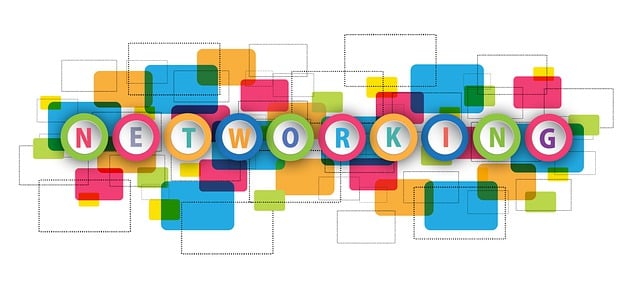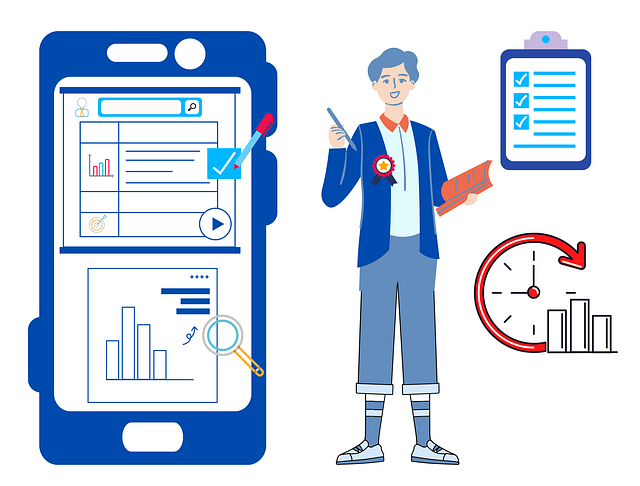AI repair shop management systems are transforming vehicle repair businesses by automating tasks, enhancing efficiency and customer service through NLP chatbots, computer vision diagnostics, predictive analytics for maintenance needs, and personalized marketing. These systems analyze customer behavior and history to offer optimal service recommendations, positioning repair shops as modern and forward-thinking while leveraging machine learning algorithms to streamline operations like scheduling, inventory management, and parts tracking. Best practices for adoption include seamless integration, collaboration between human experts and AI, regular model updates, and prioritizing privacy and data security.
In today’s digital landscape, vehicle repair businesses are leveraging AI marketing automation to stay competitive. This innovative approach transforms traditional repair shop management systems by streamlining processes, enhancing customer experiences, and optimizing operations. From predictive maintenance to personalized marketing, AI repair shop management systems offer a myriad of benefits. This article explores the ins and outs of AI integration, delving into its advantages and best practices for businesses aiming to thrive in the new era of intelligent automotive services.
- Understanding AI Marketing Automation for Vehicle Repair Businesses
- Integrating AI into Repair Shop Management Systems
- Benefits and Best Practices for AI-Driven Repair Shops
Understanding AI Marketing Automation for Vehicle Repair Businesses

AI marketing automation is transforming the way vehicle repair businesses operate, offering efficient solutions through advanced AI repair shop management systems. These systems utilize machine learning algorithms to streamline various processes, from customer interaction and lead generation to scheduling appointments and managing inventory. By automating repetitive tasks, AI enhances operational efficiency, allowing staff to focus on more complex work.
For instance, AI chatbots can handle initial customer inquiries, providing quick responses and personalized recommendations. Natural Language Processing (NLP) enables these chatbots to understand customer needs, offer diagnostics, and schedule appointments, all while collecting valuable data for targeted marketing campaigns. This level of personalization improves customer satisfaction and encourages repeat business, making AI marketing automation a powerful tool for vehicle repair companies aiming to stay competitive in the market.
Integrating AI into Repair Shop Management Systems

Integrating AI into repair shop management systems is a game-changer for vehicle repair businesses. These advanced systems leverage machine learning algorithms to automate repetitive tasks, such as scheduling appointments, managing inventory, and tracking parts orders. By streamlining operations, AI enables repair shops to enhance efficiency, reduce human error, and improve overall customer satisfaction.
In terms of AI applications, natural language processing (NLP) can be utilized for automated customer service interactions, while computer vision technology assists in diagnosing vehicle issues more accurately. Additionally, predictive analytics powered by AI helps anticipate maintenance needs, fostering proactive service approaches. Such innovations not only revolutionize the way repair shops operate but also position them as modern, forward-thinking businesses that prioritize both quality service and technological advancement.
Benefits and Best Practices for AI-Driven Repair Shops

AI marketing automation offers significant advantages for vehicle repair businesses, transforming how they manage and interact with customers. By implementing AI-driven repair shop management systems, shops can streamline operations, enhance efficiency, and deliver personalized experiences. These systems utilize machine learning algorithms to analyze vast amounts of data, such as customer behavior patterns and service history, enabling predictions about maintenance needs and optimal service recommendations. This proactive approach not only improves customer satisfaction but also fosters long-term relationships.
Best practices for adopting AI in repair shops involve integrating it seamlessly into existing workflows rather than treating it as a standalone solution. Collaboration between human experts and AI technologies ensures accurate diagnoses and informed decision-making. Regular updates to AI models based on real-world data are crucial for maintaining their effectiveness. Additionally, prioritizing customer privacy and data security is essential when handling sensitive information. By embracing these practices, repair businesses can leverage the power of AI marketing automation to stay competitive in a rapidly evolving automotive industry.
AI marketing automation is transforming vehicle repair businesses by streamlining operations, enhancing customer experiences, and driving growth. Integrating AI into existing repair shop management systems offers significant advantages, from predictive maintenance and personalized marketing to efficient scheduling and data-driven decision making. By adopting best practices and leveraging the power of AI, repair shops can stay competitive, improve profitability, and better serve their customers in today’s digital era.
